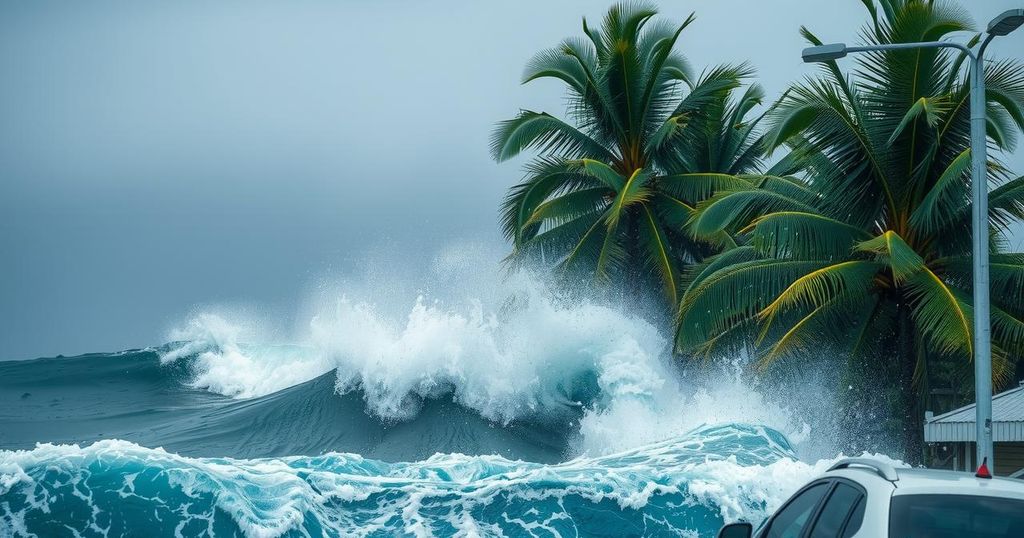Catastrophic Impact of Cyclone Chido on Mayotte
Cyclone Chido struck Mayotte on December 14, 2024, with catastrophic winds reaching 225 kilometers per hour. Formed in the Indian Ocean, it peaked as a Category 4 storm. The cyclone caused extensive damage across Mayotte and subsequently moved to Mozambique, marking a significant weather event for the region.
On December 14, 2024, Cyclone Chido unleashed its fury upon the islands of Mayotte, causing catastrophic destruction with hurricane-force winds. The cyclone, which had formed in the Indian Ocean on December 5, intensified rapidly, reaching its peak on December 12 with winds of approximately 250 kilometers per hour, categorizing it as a strong Category 4 hurricane. The Joint Typhoon Warning Center indicated that Cyclone Chido maintained favorable conditions for intensification as it approached Mayotte, including warm sea surface temperatures and minimal wind shear.
Cyclone Chido made landfall on Mayotte with sustained winds of 225 kilometers per hour. Météo-France reported that this cyclone was the most powerful storm to impact the territory in over nine decades. Extensive damage was reported, particularly in the eastern and northern regions of Mayotte, including significant destruction in the capital city, Mamoudzou, and the Pamandzi airport on Petite Terre. Following its assault on Mayotte, Cyclone Chido continued its destructive path, striking Mozambique on December 15 with comparable strength, again exhibiting winds characteristic of a Category 4 tropical cyclone.
Cyclone Chido exemplifies the increasing intensity of tropical cyclones, influenced by climate factors such as warm ocean temperatures and changing wind patterns. Forming in the Indian Ocean, Chido intensified rapidly, showcasing the ability of cyclones to develop from relatively benign disturbances into catastrophic storms within days. The cyclone’s landfall in Mayotte, a French overseas territory, marked a significant event as it produced the strongest winds recorded there in over 90 years, raising concerns about the resilience of island infrastructure against such extreme weather events. The phenomenon underscores the importance of understanding cyclone behavior and preparedness measures in vulnerable regions.
In summary, Cyclone Chido’s impact on Mayotte highlights the increasing severity of tropical storms attributed to climatic conditions. Its formation and rapid intensification prior to striking Mayotte and Mozambique demonstrate the challenges posed by such cyclones. As the strongest storm in nearly a century for Mayotte, Chido emphasizes the need for enhanced preparedness and infrastructure resilience in the face of impending climate threats.
Original Source: earthobservatory.nasa.gov




Post Comment